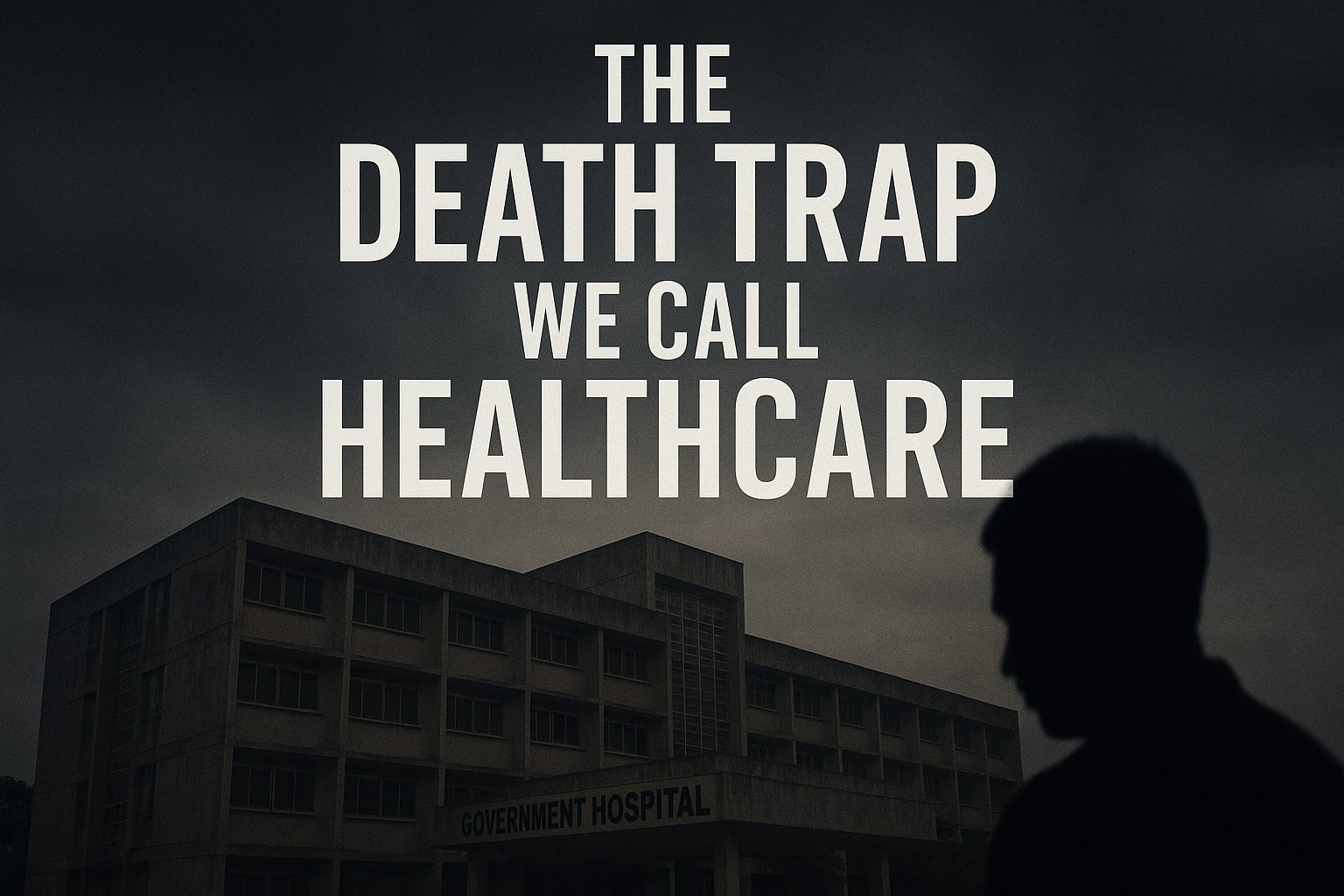I have this uneasy feeling every time I walk through the doors of a Nigerian hospital, especially a government-owned one. It’s not the sterile smell or the sight of suffering patients that gets to me; it’s the overwhelming dread that what awaits inside could be worse than the illness itself. For many Nigerians, hospitals have become something to fear. Not a place of healing, but a place where lives go to die quietly, buried under the weight of negligence, corruption, and systemic decay.
My fear isn’t paranoia. It’s experience. About three years ago, my sister underwent what was supposed to be a life-changing spinal decompression surgery at one of the best government hospitals in Nigeria. The surgery was declared successful, yet she hasn’t known peace since that day. The pain persisted excruciatingly and relentlessly. This year, when she could no longer bear it, she went for another MRI scan. The result broke us. The surgery had been botched. The professionals who handled it had done a poor job, one so bad that her spine may never fully recover.
Now she survives on pain medications, unable to risk another operation because spinal decompression isn’t something one can redo casually. The scars of her surgery aren’t just physical. They’re emotional, and a painful reminder that even the most routine procedure can end up as a lifelong punishment in Nigeria.
But her story isn’t the worst I’ve seen. Someone I know personally lost her leg this year in that same teaching hospital. She was diabetic, developed a small wound that turned into gangrene, and had her leg amputated after millions of naira spent on tests and assessments. Three weeks later, the doctors returned with the unthinkable; she needed a second amputation. Their initial evaluation was wrong. Imagine being told, after losing a limb, that they didn’t cut far enough the first time.
We didn’t wait around for them to make another mistake. Her family moved her to a private hospital, where the second surgery was finally done right. But by then, the damage was irreparable. The pain wasn’t just in her missing leg but in her heart, her dignity, her faith in a system that had utterly failed her.

Then came the worst tragedy of all; my father.
He didn’t have to die. That’s what hurts the most. He had water accumulation in his lungs, a condition that could have been managed easily by competent professionals. The fluid buildup was caused by medications prescribed for his heart condition. A simple drainage procedure was all that was needed. But negligence and human error killed him.
He died not because medicine failed, but because men did. Because the people we trusted to save him treated his life like just another routine case. Because in government hospitals, urgency is optional, and accountability doesn’t exist.
That was the day I vowed never to step into a Nigerian government hospital again. I will rather go broke seeking care in private hospitals than gamble with my life in a system that has stopped caring. And the irony? The same doctors who neglect patients in government hospitals are the ones running private clinics where they suddenly transform into angels of competence. It’s as if compassion and professionalism are reserved for those who can pay for it.
Healthcare in Nigeria has become commercialized, not in the sense of progress, but of greed. In a system where the poor are left to die and the rich are treated like royalty, the hospital is no longer a place of healing; it’s a market. The doctors clock into government hospitals to fulfill a moral checkbox, but their real energy is spent running private practices. The result? A public health system on life support.
The doctors are not the only problem, though. The rot runs much deeper than that. Underfunded facilities, obsolete equipment, unpaid staff, lack of supervision, and a government that treats healthcare as an afterthought. We have teaching hospitals without functioning MRI machines, operating theatres without stable power, and wards where patients must bring their own beddings, medications, and even gloves for the nurses.
How can a nation prosper when its citizens live in fear of their hospitals? When a patient enters an emergency ward and the first question isn’t “what’s wrong?” but “who do you know?” When people die not because they are sick, but because they couldn’t afford express treatment?
We need reform; real reform, not photo ops or political promises. Doctors must be better paid and better monitored. Hospitals must be funded, audited, and upgraded. Medical negligence must be treated as a crime, not a mistake to be brushed aside. Above all, healthcare must be rehumanized.
Because a system that doesn’t value human life will always find a way to destroy it. Until that day comes, many of us will continue to fear the very places meant to heal us. And that fear, is the real sickness killing Nigeria.
Posted Using INLEO